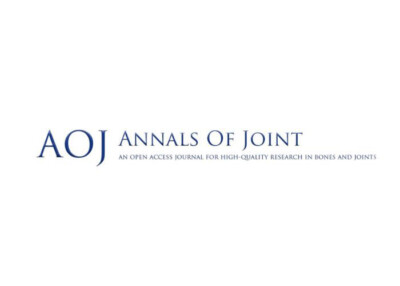Dr. Robert LaPrade Was Recently Interviewed By AOJ as an Outstanding Author
In 2024, many AOJ authors made outstanding contributions to their journal. The articles published with them have received great feedback in the field and stimulate a lot of discussions and new insights among orthopedic peers. This month, AOJ highlighted Dr. Robert F. LaPrade, one of their outstanding authors who has been making immense efforts in his research field.
Outstanding Authors (2024)
Posted On 2024-03-17 10:57:14
Courtesy of AOJ, by Brad Li, Alisa Lu
Here is his interview:
Robert F. LaPrade, MD, PhD, is a complex knee surgeon who practices at Twin Cities Orthopedics in Edina in Eagan, Minnesota, USA. In addition, he is an adjunct professor at the Department of Orthopaedic Surgery at the University of Minnesota. He is known as a specialized clinician-scientist who has utilized his comprehensive research on sports medicine to improve patient care and invent novel ways to treat knee pathology. Many of the surgeries that he has devised have been performed worldwide. He has special expertise in treating posterolateral knee injuries, PCL tears, revision ACL reconstructions, meniscal repairs and transplants, MCL injuries, multiple ligament knee injuries, knee osteotomies, fresh osteoarticular allografts, and other difficult and revision complex knee injuries. While being a full-time clinician, Dr. LaPrade is also actively involved with bench-to-bedside research. He and his group have published more than 675 peer-reviewed scientific papers and over 125 book chapters and have given over 1,000 professional presentations. They have won many national and international research awards. He is also recognized internationally as an outstanding mentor and teacher, having been chosen to be a course chair for many national and international courses, as well as having been awarded multiple teaching awards presented by residents and fellows. In addition, he has mentored international fellows from all continents. Visit Dr. LaPrade’s homepage here.
One of the most commonly encountered difficulties in academic writing, in Dr. LaPrade’s view, is to know one’s audience. Each journal has a unique writing style that is specific to that journal. Understanding the flow, whether they prefer things to be written in first or third person, and also the general layouts of academic writing for a particular journal can be key to getting a paper accepted or not. In addition, when one starts out initially, young writers often try to present as much information as they can to demonstrate that they have a knowledge of the field. Unfortunately, this can kill one’s academic submission because in general, a short and to-the-point manuscript has a much greater chance of being accepted for the peer-reviewed literature than one that goes into exquisite detail about a topic. As one gets better at writing academic works, developing an Introduction that is one page or less, having a succinct Methods section, presenting the results in the Results section either in the text or the figures and not in both, then having a Discussion section that starts out with “the most important finding of this study was…” are keys to presenting ones’ work in a manner that has the best chance of being accepted.
In view of this, Dr. LaPrade points out that a key to addressing difficulties in academic writing is understanding the sources. What he means is that one should always go back to the original source rather than papers that may have quoted it further down the line when referencing work in one’s manuscript. In addition, referring to works in higher cited peer-reviewed journals should take preference over case reports and surgical technique papers. One does not always have to have an exhaustive synthesis of works on a particular topic, but one should ensure that the most highly regarded journals in one’s field have references that take preference over book chapters, case reports and technique papers when one is summarizing the Introduction and the Discussion sections. If one tries to include too much information, sometimes reviewers will feel that “what is the purpose of this work if it has already been done?”. Therefore, he indicates that having a proper balance of new information from one’s current work with what has been published previously and the questions that were still remaining that were addressed by one’s current work is an appropriate way to try and synthesize the evidence on a particular topic.
Lastly, Dr. LaPrade highlights that it is important for authors to disclose their conflicts of interest (COIs), especially if the topic involves an area in which an author may have a specific relationship with a company. In particular, if authors are paid to write a manuscript, this should be noted as part of the information under the COIs. However, it is important to recognize the majority of high-level successful surgeons do have relationships with orthopedic companies, which may or may not influence the manner in which they present their data. Therefore, understanding who may have a relationship with a specific company and whether that company’s products are being promoted is important when one does evaluate a work by an author that may have a COI on that particular topic.
You can see the original article here: Interviews with Outstanding Authors (2024)

